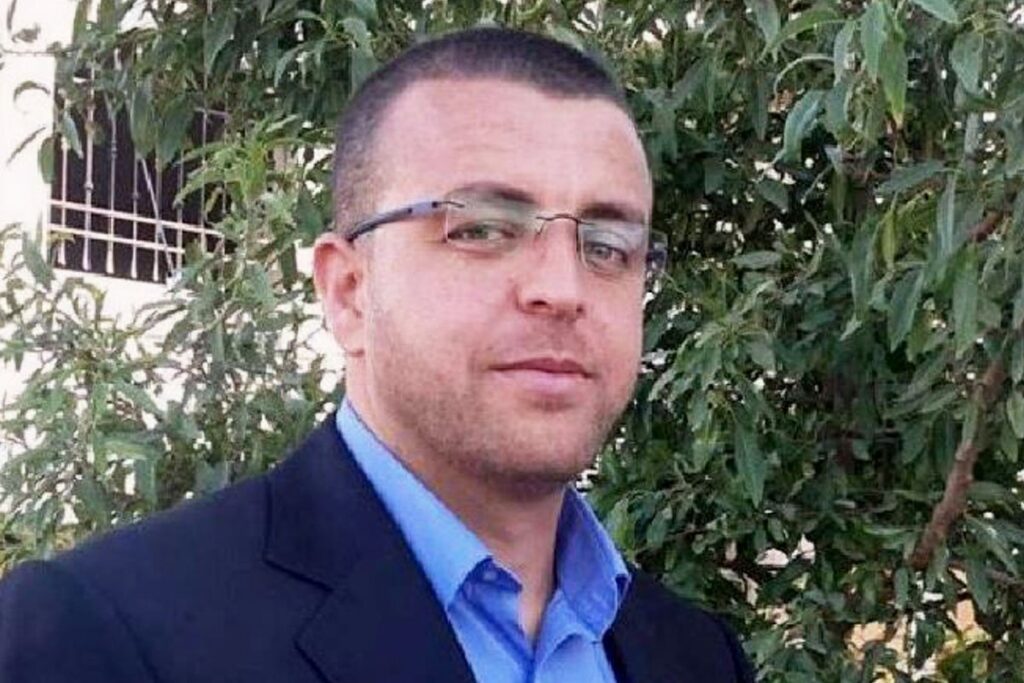 Palestinian journalist and former long-term hunger striker Mohammed al-Qeeq was ordered to eight more days in interrogation by the Ofer military court on Thursday, 26 January, reported his family.
Palestinian journalist and former long-term hunger striker Mohammed al-Qeeq was ordered to eight more days in interrogation by the Ofer military court on Thursday, 26 January, reported his family.
Al-Qeeq was seized by Israeli occupation forces on 15 January as he returned from a protest in Bethlehem demanding the release of the detained bodies of Palestinians killed by Israeli forces. He was held under administrative detention without charge or trial and launched a hunger strike in December 2015. The strike lasted for 94 days and ended in Al-Qeeq’s release in May 2016; his case drew worldwide attention to the targeting of Palestinian journalists and the issue of administrative detention.
Since his latest arrest, Israeli authorities have not garnered confessions or issued charges against al-Qeeq, although they earlier expressed that they were investigating him for “incitement” on social media, a charge targeting Palestinian expression that has become widely used in Israeli military courts, reported his wife and fellow journalist, Fayha Shalash.
His detention was extended on 19 January, 23 January and again yesterday, 26 January, for an additional eight days. On Wednesday, 25 January, al-Qeeq’s family home in al-Khalil and he and Shalash’s apartment in Ramallah were invaded by Israeli occupation forces in pre-dawn raids, who ransacked the homes and subjected Shalash to a strip search. Shalash was summoned to interrogation by Israeli intelligence, while al-Qeeq is being held in the Petah Tikva interrogation center.
Al-Qeeq has pledged that he will launch a hunger strike if he is again ordered to administrative detention without charge or trial. There are approximately 700 Palestinians held in administrative detention, indefinitely renewable imprisonment without charge or trial on the basis of secret evidence, among a total of nearly 7,000 Palestinian political prisoners. Palestinians can spend years at a time in administrative detention due to consecutively renewable orders.
Discover more from Samidoun: Palestinian Prisoner Solidarity Network
Subscribe to get the latest posts sent to your email.




